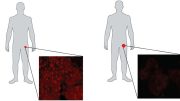
The largest study of its kind reports that active monitoring for prostate cancer has the same high survival rates after 15 years as radiotherapy or surgery. Men on active monitoring were more likely to see the cancer progress or spread than those receiving radiotherapy or surgery, but this did not affect their survival rate. The study also found that the negative impacts of radiotherapy and surgery on urinary and sexual function last much longer than previously believed, up to 12 years.
Clinical trial shows that delaying treatment for localized prostate cancer does not increase mortality risk.
Active monitoring of prostate cancer has the same high survival rates after 15 years as radiotherapy or surgery, reports the largest study of its kind.
The latest findings from the ProtecT trial, led by the Universities of Oxford and Bristol, were presented on March 11 at the European Association of Urology (EAU) Congress in Milan and published in the New England Journal of Medicine.
The trial was funded by the National Institute for Health and Care Research (NIHR).
Although men on active monitoring – which involves regular tests to check on the cancer – were more likely to see it progress or spread than those receiving radiotherapy or surgery, this didn’t reduce their likelihood of survival.
The trial also found that the negative impacts of radiotherapy and surgery on urinary and sexual function persist much longer than previously thought – for up to 12 years.
The findings show that treatment decisions following diagnosis for low and intermediate-risk localized prostate cancer do not need to be rushed, according to lead investigator, Professor Freddie Hamdy from the University of Oxford.
“It’s clear that, unlike many other cancers, a diagnosis of prostate cancer should not be a cause for panic or rushed decision-making,” he said. “Patients and clinicians can and should take their time to weigh up the benefits and possible harms of different treatments in the knowledge that this will not adversely affect their survival.”
The trial was conducted in nine UK centers and is the longest-running study of its kind. It is the first to fully evaluate three major treatment options: active monitoring, surgery (radical prostatectomy), and radiotherapy with hormones for men with localized prostate cancer.
Between 1999 and 2009, 1,643 men aged 50-69 years across the UK, who were diagnosed with localized prostate cancer after a PSA blood test, agreed to be randomized to active monitoring (545), radical prostatectomy (553) or radical radiotherapy (545). The research team followed the men over an average of 15 years, to measure mortality rates, cancer progression and spread, and the impact of treatments on quality of life.
They found that around 97% of the men diagnosed with prostate cancer survived 15 years after diagnosis, irrespective of which treatment they received. Around a quarter of the men on active monitoring had still not had any invasive treatment for their cancer after 15 years.
Patients from all three groups reported similar overall quality of life, in terms of their general mental and physical health. But the negative effects of surgery or radiotherapy on urinary, bowel, and sexual function were found to persist much longer than previously thought.
In earlier findings released in 2016, the researchers found that, after ten years follow-up, men whose cancer was being actively monitored were twice as likely to see it progress or metastasize than those in the other groups. The assumption had been that this might lead to a lower survival rate for men on active monitoring over a longer time period. However, the results from the 15-year follow-up show that this isn’t the case and that survival rates remain similarly high across all groups.
Professor Freddie Hamdy said: “This is very good news. Most men with localized prostate cancer are likely to live for a long time, whether or not they receive invasive treatment and whether or not their disease has spread, so a quick decision for treatment is not necessary and could cause harm.”
“It’s also now clear that a small group of men with aggressive disease are unable to benefit from any of the current treatments, however early these are given. We need to both improve our ability to identify these cases and our ability to treat them.”
Co-investigator, Professor Jenny Donovan, from the University of Bristol, said: “Patients and doctors now have the necessary information on the long-lasting side effects of treatments to better understand the trade-offs between their benefits and harms. Survival no longer needs to be considered when deciding on treatment – as that’s the same for all three options. Now men diagnosed with localized prostate cancer can use their own values and priorities when making the difficult decisions about which treatment to choose.”
The trial has also highlighted flaws in current methods to predict which prostate cancers are likely to grow quickly and spread. Initially, all those recruited to the trial were diagnosed with localized cancer and 77% of them were deemed low risk. A reassessment using more modern methods showed that a far greater number would now be considered intermediate-risk – and in around 30% of men, the disease had spread beyond the prostate already. This means that the participants in the study had higher grade and stage disease than was thought initially. Despite this finding, mortality was still low, even when men with intermediate disease delayed or did not have radical treatment. Some of the men who subsequently died of their prostate cancer had been assessed as low risk at diagnosis, which the researchers highlight as an issue of concern.
Professor Peter Albers, chair of the EAU’s Scientific Congress Office and a urologist at Düsseldorf University, said: “The fact that the greater progression of disease seen under active monitoring didn’t translate into higher mortality will be both surprising and encouraging to urologists and patients. Active monitoring and biopsy protocols today are much more advanced than at the time this trial was conducted, so it’s possible we could improve on these outcomes still further. It’s an important message for patients that delaying treatment is safe, especially as that means delaying side effects as well.”
“But it’s also clear that we still don’t know enough about the biology of this disease to determine which cancers will be the most aggressive and more research on this is urgently needed.”
Reference: “Fifteen-Year Outcomes after Monitoring, Surgery, or Radiotherapy for Prostate Cancer” by Freddie C. Hamdy, F.R.C.S.(Urol.), F.Med.Sci., Jenny L. Donovan, Ph.D., F.Med.Sci., J. Athene Lane, Ph.D., Chris Metcalfe, Ph.D., Michael Davis, M.Sc., Emma L. Turner, Ph.D., Richard M. Martin, B.M., B.S., Ph.D., Grace J. Young, M.Sc., Eleanor I. Walsh, M.Sc., Richard J. Bryant, Ph.D., F.R.C.S.(Urol.), Prasad Bollina, M.B., B.S., F.R.C.S.(Urol.), Andrew Doble, F.R.C.S.(Urol.), Alan Doherty, F.R.C.S.(Urol.), David Gillatt, F.R.C.S.(Urol.), Vincent Gnanapragasam, Ph.D., F.R.C.S.(Urol.), Owen Hughes, F.R.C.S.(Urol.), D.M., Roger Kockelbergh, D.M., F.R.C.S.(Urol.), Howard Kynaston, M.D., F.R.C.S.(Urol.), Alan Paul, M.D., F.R.C.S.(Urol.), Edgar Paez, F.R.C.S.(Urol.), Philip Powell, M.D., F.R.C.S., Derek J. Rosario, M.D., F.R.C.S.(Urol.), Edward Rowe, M.D., F.R.C.S.(Urol.), Malcolm Mason, M.D., F.R.C.R., James W.F. Catto, Ph.D., F.R.C.S.(Urol.), Tim J. Peters, Ph.D., F.Med.Sci., Jon Oxley, M.D., F.R.C.Path., Naomi J. Williams, Ph.D., John Staffurth, F.R.C.R., F.R.C.P. and David E. Neal, F.Med.Sci. for the ProtecT Study Group, 11 March 2023, New England Journal of Medicine.
DOI: 10.1056/NEJMoa2214122
Meeting: EAU23 European Association of Urology Annual Congress
Funding: National Institute for Health Research









I had been told in December of 2018 that I had grade 10 cancer and it was spreading.The Urologist explained that surgery was the gold medal standard(I saw this also online a few times).I have never had the urinary control and sex with my wife has been a dead issue.I wish the information you have given in this article had been common knowledge then but still think it’s great to see it for those who can benefit from it now,Keep it up ,Thank you.
I find this as non issue. What the hell are you people talking about ? At 40 I had a PSA done for a base line
my Dad ended up with it in his early 70’s he took Radiation bad move because he was afraid of the knife. Took it for years while he ran his own business bad move . It would knock him down every time and still ended dyeing from it at 87.
I had a check up with my wifes Urologist seemed okay asked if he could do a biopsy sure go ahead sure enough there it was hiding Did a operation had an epidural awake through the whole thing saw what the prostate looked like and had to go back only on minor issue of using the Cather to prevent scar tissue problem. Have had 2 PSA test since then And NO pissing or leaking problems No sex problems with 1st wife second wife and all the women after that None complained. Oh I’m 80 now. Looking for more.
Great read!!! Thanks for sharing such a great blog, keep sharing such a great blog.